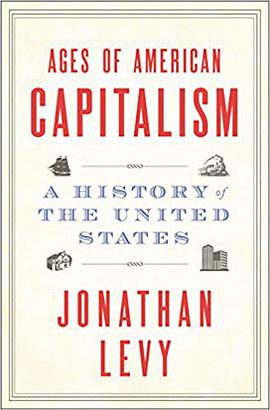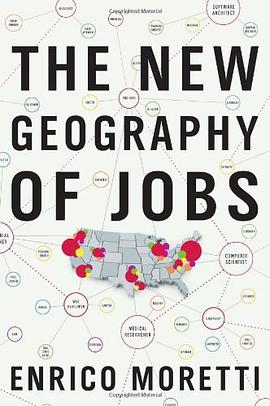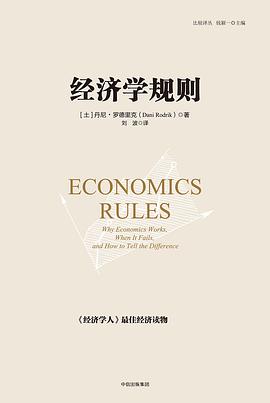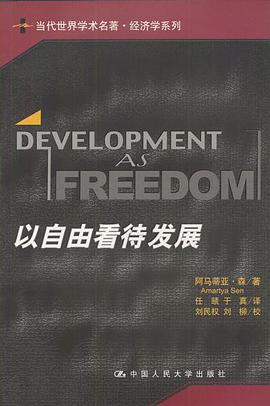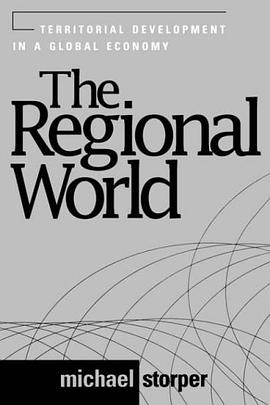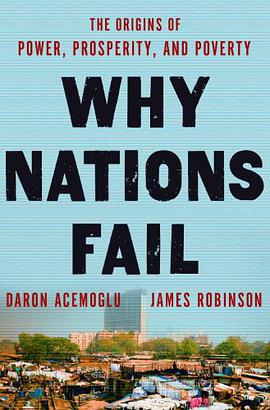经济
大失衡 豆瓣
The Great Rebalancing: Trade, Conflict, and the Perilous Road Ahead for the World Economy
作者:
[美]迈克尔•佩蒂斯
译者:
王璟
2014
- 10
《大失衡》给读者提供了一个理解2008年金融危机真正的全球视角,诸如美国的消费狂欢、欧洲不断飙升的债务、中国的投资盛宴、日本的长期经济停滞,以及拉丁美洲的大宗商品泡沫,这些看似并不相关的现象其实从全球视角来看是紧密联系的,如果没有一个整体的解决方案,这些问题是不可能单独得到解决的,某些国家扭曲的国内政策给整个世界经济带来的负面影响,有其内在的运行机理,而全球经济问题的解决则需要世界主要经济体的通力合作,但前景却难言乐观。
2008年的金融危机,激起了关于危机根源和如何走出危机的广泛讨论,而本书即是从全球视角理解这场危机的重要学术成果之一。它不仅纠正了当前流行的一些错误概念,而且有力地证明了,这场危机的真正根源其实是长期严重的世界贸易失衡,而导致这种失衡的,则是某些国家所采取的扭曲国内储蓄和消费结构的错误政策。本书不仅系统考察了这些不稳定政策背后的原因,并且预言世界经济将会陷入长期严重的混乱——中国将经历“失去的十年”,欧元区将解体,而美元将不可避免地走向衰落。世界经济正在经历的再平衡过程将是十分漫长的,而实现再平衡的前提是,某些国家必须改变此前长期施行的错误的国内政策,比如中国必须改变其通过人为压低资金成本来维持不可持续的投资驱动型增长;而德国则不能再以牺牲邻国为代价来满足自身的发展,否则欧元将无法走出危险的境地。
2008年的金融危机,激起了关于危机根源和如何走出危机的广泛讨论,而本书即是从全球视角理解这场危机的重要学术成果之一。它不仅纠正了当前流行的一些错误概念,而且有力地证明了,这场危机的真正根源其实是长期严重的世界贸易失衡,而导致这种失衡的,则是某些国家所采取的扭曲国内储蓄和消费结构的错误政策。本书不仅系统考察了这些不稳定政策背后的原因,并且预言世界经济将会陷入长期严重的混乱——中国将经历“失去的十年”,欧元区将解体,而美元将不可避免地走向衰落。世界经济正在经历的再平衡过程将是十分漫长的,而实现再平衡的前提是,某些国家必须改变此前长期施行的错误的国内政策,比如中国必须改变其通过人为压低资金成本来维持不可持续的投资驱动型增长;而德国则不能再以牺牲邻国为代价来满足自身的发展,否则欧元将无法走出危险的境地。
置身事内 豆瓣 谷歌图书
8.6 (293 个评分)
作者:
兰小欢
上海人民出版社
2021
- 8
其它标题:
置身事内:中国政府与经济发展
“在成功的经济体中,经济政策一定是务实的,不是意识形态化的。是具体的,不是抽象的。”
直面真问题、深究真逻辑的复旦大学经济学“毕业课”
☆ 连接抽象经济学理论与中国发展实际
在市场机制不完善的情况下,如何实现可行的动员与资源调配,推动经济增长?
在确保增长的过程中,如 何获得更多资源和时间去建设和完善市场经济?
☆ 结合学界前沿研究与一线调研经历
扼要论述+延伸阅读指引,满足弹性认知需求
生动解说光伏、面板等行业案例,清晰复盘宽窄巷子、华夏幸福等建设经验
☆ 微观机制+宏观现象 双重维度串联中国经济生活中中知识与现象的碎片
理解地方政府经济治理的决策与行动逻辑
解读城市化、房价、贫富差距、债务、国内外贸易生态等现象背后各种要素的联动
☆ 从热闹的政经新闻中看出门道,从枯燥的政府文件中觉察到机会。
“了解政府认为应该怎么办,比了解‘我’认为应该怎么办,重要得多。”
------------------------------------------------------------------------------------------------------
本书是是兰小欢多年教学、调研与研究内容的凝练,将经济学原理与中国经济发展的实践有机融合,以地方政府投融资为主线,深入浅出地论述了中国经济的发展,笔触简练客观,并广泛采纳了各领域学者的最新研究成果。全书分上下两篇。上篇解释微观机制,包括地方政府的基本事务、收支、土地融资和开发、投资和债务等;下篇解释这些微观行为与宏观现象的联系,包括城市化和工业化、房价、地区差异、债务风险、国内经济结构失衡、国际贸易冲突等。最后一章提炼和总结全书内容。
通过对中国政治经济体系的论述,作者简明地刻画了地方政府进行经济治理的基本方式,并指出,中国政府通过深度介入工业化和城市化的进程,在发展经济的同时逐步推动了市场机制的建立和完善,以一种有别于所谓发达国家经验的方式实现了经济奇迹。基于对改革历程与社会矛盾的回顾与分析,作者也在书中对当前推进的市场化改革与政府转型进行了解读,帮助读者增进对中国发展现实的把握。
直面真问题、深究真逻辑的复旦大学经济学“毕业课”
☆ 连接抽象经济学理论与中国发展实际
在市场机制不完善的情况下,如何实现可行的动员与资源调配,推动经济增长?
在确保增长的过程中,如 何获得更多资源和时间去建设和完善市场经济?
☆ 结合学界前沿研究与一线调研经历
扼要论述+延伸阅读指引,满足弹性认知需求
生动解说光伏、面板等行业案例,清晰复盘宽窄巷子、华夏幸福等建设经验
☆ 微观机制+宏观现象 双重维度串联中国经济生活中中知识与现象的碎片
理解地方政府经济治理的决策与行动逻辑
解读城市化、房价、贫富差距、债务、国内外贸易生态等现象背后各种要素的联动
☆ 从热闹的政经新闻中看出门道,从枯燥的政府文件中觉察到机会。
“了解政府认为应该怎么办,比了解‘我’认为应该怎么办,重要得多。”
------------------------------------------------------------------------------------------------------
本书是是兰小欢多年教学、调研与研究内容的凝练,将经济学原理与中国经济发展的实践有机融合,以地方政府投融资为主线,深入浅出地论述了中国经济的发展,笔触简练客观,并广泛采纳了各领域学者的最新研究成果。全书分上下两篇。上篇解释微观机制,包括地方政府的基本事务、收支、土地融资和开发、投资和债务等;下篇解释这些微观行为与宏观现象的联系,包括城市化和工业化、房价、地区差异、债务风险、国内经济结构失衡、国际贸易冲突等。最后一章提炼和总结全书内容。
通过对中国政治经济体系的论述,作者简明地刻画了地方政府进行经济治理的基本方式,并指出,中国政府通过深度介入工业化和城市化的进程,在发展经济的同时逐步推动了市场机制的建立和完善,以一种有别于所谓发达国家经验的方式实现了经济奇迹。基于对改革历程与社会矛盾的回顾与分析,作者也在书中对当前推进的市场化改革与政府转型进行了解读,帮助读者增进对中国发展现实的把握。
Ages of American Capitalism 豆瓣
作者:
Jonathan Levy
Random House
2021
- 4
A leading economic historian traces the evolution of American capitalism from the colonial era to the present—and argues that we’ve reached a turning point that will define the era ahead.
“The best one-volume history of American capitalism . . . It is impossible to understand the United States without understanding its economic history. This book, from one of the nation’s foremost historians of capitalism, brings that important and endlessly fascinating story to life.”—Sven Beckert, author of Empire of Cotton
Today, in the midst of a new economic crisis and severe political discord, the nature of capitalism in United States is at a crossroads. Since the market crash and Great Recession of 2008, historian Jonathan Levy has been teaching a course to help his students understand everything that had happened to reach that disaster and the current state of the economy, but in doing so he discovered something more fundamental about American history. Now, in an ambitious single-volume history of the United States, he reveals how, from the beginning of U.S. history to the present, capitalism in America has evolved through four distinct ages and how the country’s economic evolution is inseparable from the nature of American life itself.
The Age of Commerce spans the colonial era through the outbreak of the Civil War, a period of history in which economic growth and output largely depended on enslaved labor and was limited by what could be drawn from the land and where it could be traded. The Age of Capital traces the impact of the first major leap in economic development following the Civil War: the industrial revolution, when capitalists set capital down in factories to produce commercial goods, fueled by labor moving into cities. But investments in the new industrial economy led to great volatility, most dramatically with the onset of the Great Depression in 1929. The Depression immediately sparked the Age of Control, when the government took on a more active role in the economy, first trying to jump-start it and then funding military production during World War II. Skepticism of government intervention in the Cold War combined with recession and stagflation in the 1970s led to a crisis of industrial capitalism and the withdrawal of political will for regulation. In the Age of Chaos that followed, the combination of deregulation and the growth of the finance industry created a booming economy for some but also striking inequalities and a lack of oversight that led directly to the crash of 2008.
In Ages of American Capitalism, Jonathan Levy proves that, contrary to political dogma, capitalism in the United States has never been just one thing. Instead, it has morphed throughout the country’s history—and it’s likely changing again right now.
“The best one-volume history of American capitalism . . . It is impossible to understand the United States without understanding its economic history. This book, from one of the nation’s foremost historians of capitalism, brings that important and endlessly fascinating story to life.”—Sven Beckert, author of Empire of Cotton
Today, in the midst of a new economic crisis and severe political discord, the nature of capitalism in United States is at a crossroads. Since the market crash and Great Recession of 2008, historian Jonathan Levy has been teaching a course to help his students understand everything that had happened to reach that disaster and the current state of the economy, but in doing so he discovered something more fundamental about American history. Now, in an ambitious single-volume history of the United States, he reveals how, from the beginning of U.S. history to the present, capitalism in America has evolved through four distinct ages and how the country’s economic evolution is inseparable from the nature of American life itself.
The Age of Commerce spans the colonial era through the outbreak of the Civil War, a period of history in which economic growth and output largely depended on enslaved labor and was limited by what could be drawn from the land and where it could be traded. The Age of Capital traces the impact of the first major leap in economic development following the Civil War: the industrial revolution, when capitalists set capital down in factories to produce commercial goods, fueled by labor moving into cities. But investments in the new industrial economy led to great volatility, most dramatically with the onset of the Great Depression in 1929. The Depression immediately sparked the Age of Control, when the government took on a more active role in the economy, first trying to jump-start it and then funding military production during World War II. Skepticism of government intervention in the Cold War combined with recession and stagflation in the 1970s led to a crisis of industrial capitalism and the withdrawal of political will for regulation. In the Age of Chaos that followed, the combination of deregulation and the growth of the finance industry created a booming economy for some but also striking inequalities and a lack of oversight that led directly to the crash of 2008.
In Ages of American Capitalism, Jonathan Levy proves that, contrary to political dogma, capitalism in the United States has never been just one thing. Instead, it has morphed throughout the country’s history—and it’s likely changing again right now.
若干重大决策与事件的回顾 上卷 豆瓣
作者:
薄一波
中共中央党校出版社
1991
- 5
作者把个人的回忆和对历史档案、党的文献、中央领导同志的选集、文选以及十一届三中全会以来,党中央关于重大问题的总结和根据新情况作出的新的重大决策的学习与研究结合起来,如实地反映历史发展的真实过程。
近代中国的银行业 豆瓣
Banking in Modern China: Entrepreneurs, Professional Managers, and the Development of Chinese Banks, 1897-1937
作者:
程麟荪
译者:
徐昂
/
袁煦筠
社会科学文献出版社
2021
- 1
本书记录了从1897年仿照西方模式建立第一家中国近代银行,到1937年日本入侵造成中国银行业突然中断的历程。作者利用上海市档案馆、中国人民银行上海支行、中国第二历史档案馆收藏的近代中国各大银行的原始档案,以几家重要华资银行和几位杰出的中国银行家为中心,展示近代中国银行业的演变,探讨这些银行在与国内外同行竞争时采用的商业做法,研究它们迅速增长的原因。这本书有丰富的历史细节,全面阐述了中国现代银行的起源和发展。
债务货币 (2006) 豆瓣
Money as Debt
导演:
Paul Grignon
演员:
Bob Bossin
其它标题:
Money as Debt
「我们感谢华盛顿邮报、纽约时报、时代周刊和其他大出版社的主管们,谢谢你们参加我们的会议,并在差不多四十年的时间里信守诺言,为我们分散注意力,如果在公开的情况下成为公众的焦点,那么我们制定给这个世界的那些计划将不可能实施。但是,现在的世界已经变得更加成熟,并且已经准备好向一个世界政府迈进了。一个由智力精英和世界银行家连手统治的、超越国度的主权,无疑比过去几个世纪里各个国家自制的制度更加可取。」
-戴维.洛克菲勒 1991年在一个三边委员会会议上的一段演说
“We are grateful to the Washington Post, the New York Times, Time magazine and other great publications whose directors have attended our meetings and respected the promises of discretion for almost forty years. It would have been impossible for us to develop our plan for the world if we had been subject to the bright lights of publicity during those years. But, the world is now more sophisticated and prepared to march towards a world-government. The supranational sovereignty of an intellectual elite and world bankers is surely preferable to the National auto-determination practiced in past centuries.”
~ David Rockefeller in an address to Trilateral Commission meeting, 1991
.
-戴维.洛克菲勒 1991年在一个三边委员会会议上的一段演说
“We are grateful to the Washington Post, the New York Times, Time magazine and other great publications whose directors have attended our meetings and respected the promises of discretion for almost forty years. It would have been impossible for us to develop our plan for the world if we had been subject to the bright lights of publicity during those years. But, the world is now more sophisticated and prepared to march towards a world-government. The supranational sovereignty of an intellectual elite and world bankers is surely preferable to the National auto-determination practiced in past centuries.”
~ David Rockefeller in an address to Trilateral Commission meeting, 1991
.
货币背后的秘密 (2013) 豆瓣
Hidden Secrets of Money
7.2 (5 个评分)
导演:
Michael Maloney
演员:
Michael Maloney
/
Max Keiser
…
Mike Maloney导演的一部系列纪录片,详述了从金银货币到纸币的变化过程,现代银行体系的运作的基本原理。在纪录片后面 ,Mike Maloney表达了他们的货币立场,仅供参考。
第1集:通货VS货币(20130227)
第2集:帝国的七个阶段(20130813)
第3集:从美元危机到黄金机会(20130924)
第4集:人类史上的最大骗局(20131016)
第5集:货币堕落引发的孪生险象(20131126)
第6集:摇摇欲坠的过山车(20151118)
第7集:美国的审判日(20161005)
第8集:加密革命(20171218)
第9集:帝国的陨落(20181030)
第10集:面包和马戏团(20181031)
第1集:通货VS货币(20130227)
第2集:帝国的七个阶段(20130813)
第3集:从美元危机到黄金机会(20130924)
第4集:人类史上的最大骗局(20131016)
第5集:货币堕落引发的孪生险象(20131126)
第6集:摇摇欲坠的过山车(20151118)
第7集:美国的审判日(20161005)
第8集:加密革命(20171218)
第9集:帝国的陨落(20181030)
第10集:面包和马戏团(20181031)
华北的小农经济与社会变迁 豆瓣
9.2 (5 个评分)
作者:
[美] 黄宗智
中华书局
2000
- 6
本书根据多种档案材料和实地考察,并结合社会学诸多方面,探讨了华北小农经济长期未发展为资本主义经济形式的原因,并系统总结了西方和日本学者在此问题上的各种观点,内容丰富充实。
指标陷阱 豆瓣
The Tyranny of Metrics
作者:
[美]杰瑞·穆勒
译者:
闾佳
东方出版中心
2020
- 7
◆诺贝尔经济学奖得主阿克洛夫、哈佛商学院院长库拉纳、耶鲁大学公卫学院院长施莱辛格等 强力推荐!
◆英国教育标准局等多国教育、医疗、商业官方机构,《金融时报》《经济学人》等各大国际媒体力荐!
◆本书作者杰瑞·穆勒是美国华盛顿天主教大学杰出教授,著作等身,凭借畅销书《市场与大师》被美国历史学会授予唐纳德·卡根奖。
◆本书2019年决选入围哈耶克图书奖!
◆无论OKR还是KPI,都可能让人误入歧途!指标曾经只是一种工具,为何如今却成了一门“邪教”?
今日各式各样的组织都深信,成功的必经之路就是量化人的绩效,公布结果,并根据数字来分配酬劳。但是,当我们饱含热情地投入具有科学严谨性的评估过程,我们却由测量绩效,变成了痴迷于测量本身。这就带来了“指标的暴政”,它始终威胁着人类生活的品质和最重要机构的表现。在这本来得甚为及时的力作当中,杰瑞·穆勒揭示了我们对指标的沉迷正在造成什么样的损害——并探讨了我们应当如何加以补救。
本书简明易懂,列举了大量来自教育、医疗、商业和金融、政府、警察和军队、慈善事业及对外援助领域的事例,解释了为何看似势不可挡的量化绩效的压力,会造成扭曲和分心效应,不管是经由鼓励“对数字动手脚”还是“为了考试而教学”。但是,指标其实可以成为好东西,只要我们是用它来辅助——而非替代——基于个人经验的判断力,穆勒也列举了指标在哪些情况下发挥了有益作用。
书末还提供了一份何时以及怎样运用指标的核对清单。对于日益波及我们所有人,却罕有人质疑的一股趋势,《指标陷阱》是一份不可或缺的矫正。
◆英国教育标准局等多国教育、医疗、商业官方机构,《金融时报》《经济学人》等各大国际媒体力荐!
◆本书作者杰瑞·穆勒是美国华盛顿天主教大学杰出教授,著作等身,凭借畅销书《市场与大师》被美国历史学会授予唐纳德·卡根奖。
◆本书2019年决选入围哈耶克图书奖!
◆无论OKR还是KPI,都可能让人误入歧途!指标曾经只是一种工具,为何如今却成了一门“邪教”?
今日各式各样的组织都深信,成功的必经之路就是量化人的绩效,公布结果,并根据数字来分配酬劳。但是,当我们饱含热情地投入具有科学严谨性的评估过程,我们却由测量绩效,变成了痴迷于测量本身。这就带来了“指标的暴政”,它始终威胁着人类生活的品质和最重要机构的表现。在这本来得甚为及时的力作当中,杰瑞·穆勒揭示了我们对指标的沉迷正在造成什么样的损害——并探讨了我们应当如何加以补救。
本书简明易懂,列举了大量来自教育、医疗、商业和金融、政府、警察和军队、慈善事业及对外援助领域的事例,解释了为何看似势不可挡的量化绩效的压力,会造成扭曲和分心效应,不管是经由鼓励“对数字动手脚”还是“为了考试而教学”。但是,指标其实可以成为好东西,只要我们是用它来辅助——而非替代——基于个人经验的判断力,穆勒也列举了指标在哪些情况下发挥了有益作用。
书末还提供了一份何时以及怎样运用指标的核对清单。对于日益波及我们所有人,却罕有人质疑的一股趋势,《指标陷阱》是一份不可或缺的矫正。
权力结构、政治激励和经济增长 豆瓣 Goodreads
9.0 (22 个评分)
作者:
章奇
/
刘明兴
格致出版社 / 上海三联书店 / 上海人民出版社
2016
- 3
本书选取民营经济极为发达、中国最富裕的省份之一浙江作为分析对象,在考察了1949年后浙江民营经济发展背后的政治逻辑之后,提出了一个典型的政治经济学分析框架:地方政治精英在历史原因所造成的政治权力结构中所处的不同地位,决定了地方政治精英出于自身政治利益最大化而对发展民营经济采取了不同的态度和方式。书中的逻辑不仅能够分析包括浙江在内的中国地方经济发展的绩效差异,同时也为进一步理解集权体制下的政治经济学及其性质提供了一个分析框架。
The New Geography of Jobs 豆瓣 Goodreads Goodreads
The New Geography of Jobs
作者:
Enrico Moretti
Houghton Mifflin Harcourt
2012
- 5
From a rising young economist, an examination of innovation and success, and where to find them in America.
An unprecedented redistribution of jobs, population, and wealth is under way in America, and it is likely to accelerate in the years to come. America’s new economic map shows growing differences, not just between people but especially between communities. In this important and persuasive book, U.C. Berkeley economist Enrico Moretti provides a fresh perspective on the tectonic shifts that are reshaping America’s labor market—from globalization and income inequality to immigration and technological progress—and how these shifts are affecting our communities. Drawing on a wealth of stimulating new studies, Moretti uncovers what smart policies may be appropriate to address the social challenges that are arising.
We’re used to thinking of the United States in dichotomous terms: red versus blue, black versus white, haves versus have-nots. But today there are three Americas. At one extreme are the brain hubs—cities like San Francisco, Boston, Austin, and Durham—with a well-educated labor force and a strong innovation sector. Their workers are among the most productive, creative, and best paid on the planet. At the other extreme are cities once dominated by traditional manufacturing, which are declining rapidly, losing jobs and residents. In the middle are a number of cities that could go either way. For the past thirty years, the three Americas have been growing apart at an accelerating rate. This divergence is one the most important recent developments in the United States and is causing growing geographic disparities is all other aspects of our lives, from health and longevity to family stability and political engagement.
But the winners and losers aren’t necessarily who you’d expect. Moretti’s groundbreaking research shows that you don’t have to be a scientist or an engineer to thrive in one of these brain hubs. Among the beneficiaries are the workers who support the "idea-creators"—the carpenters, hair stylists, personal trainers, lawyers, doctors, teachers and the like. In fact, Moretti has shown that for every new innovation job in a city, five additional non-innovation jobs are created, and those workers earn higher salaries than their counterparts in other cities.
It wasn’t supposed to be this way. As the global economy shifted from manufacturing to innovation, geography was supposed to matter less. But the pundits were wrong. A new map is being drawn—the inevitable result of deep-seated but rarely discussed economic forces. These trends are reshaping the very fabric of our society. Dealing with this split—supporting growth in the hubs while arresting the decline elsewhere—will be the challenge of the century, and The New Geography of Jobs lights the way.
An unprecedented redistribution of jobs, population, and wealth is under way in America, and it is likely to accelerate in the years to come. America’s new economic map shows growing differences, not just between people but especially between communities. In this important and persuasive book, U.C. Berkeley economist Enrico Moretti provides a fresh perspective on the tectonic shifts that are reshaping America’s labor market—from globalization and income inequality to immigration and technological progress—and how these shifts are affecting our communities. Drawing on a wealth of stimulating new studies, Moretti uncovers what smart policies may be appropriate to address the social challenges that are arising.
We’re used to thinking of the United States in dichotomous terms: red versus blue, black versus white, haves versus have-nots. But today there are three Americas. At one extreme are the brain hubs—cities like San Francisco, Boston, Austin, and Durham—with a well-educated labor force and a strong innovation sector. Their workers are among the most productive, creative, and best paid on the planet. At the other extreme are cities once dominated by traditional manufacturing, which are declining rapidly, losing jobs and residents. In the middle are a number of cities that could go either way. For the past thirty years, the three Americas have been growing apart at an accelerating rate. This divergence is one the most important recent developments in the United States and is causing growing geographic disparities is all other aspects of our lives, from health and longevity to family stability and political engagement.
But the winners and losers aren’t necessarily who you’d expect. Moretti’s groundbreaking research shows that you don’t have to be a scientist or an engineer to thrive in one of these brain hubs. Among the beneficiaries are the workers who support the "idea-creators"—the carpenters, hair stylists, personal trainers, lawyers, doctors, teachers and the like. In fact, Moretti has shown that for every new innovation job in a city, five additional non-innovation jobs are created, and those workers earn higher salaries than their counterparts in other cities.
It wasn’t supposed to be this way. As the global economy shifted from manufacturing to innovation, geography was supposed to matter less. But the pundits were wrong. A new map is being drawn—the inevitable result of deep-seated but rarely discussed economic forces. These trends are reshaping the very fabric of our society. Dealing with this split—supporting growth in the hubs while arresting the decline elsewhere—will be the challenge of the century, and The New Geography of Jobs lights the way.
经济学规则 豆瓣
Economics Rules: The Rights and Wrongs of the Dismal Science
作者:
[土耳其] 丹尼·罗德里克
译者:
刘波
中信出版集团股份有限公司
2017
- 1
长期以来,世人对经济学的认识有两种倾向:一是教条主义,以抽象的理论模型为准绳简单推演复杂的经济现实;二是经验主义,以复杂的经济现实来否定理论模型的重要性。经济学家为此也备受诟病。丹尼·罗德里克从经济学模型建构的角度还原什么才是真正的经济学。经济学理论之所有要抽象和简单化,是为了探讨现象背后*本质的因素。与此同时,经济学家开发出多种多样的模型,从不同侧面解释经济现实,为我们勾画出一个更加全面的图景。
当然,经济学家也会时不时地犯经验主义的错误,尤其是在公共政策领域。他们误以为存在某种“普适模型”。实际上,他们应该根据具体条件,对模型加以斟酌鉴别,选择*适合的模型。在这一过程中,意识形态和政治偏好不应压倒对现实的体察和推理。
本书既为经济学辩护,也正视经济学界面临的问题和挑战。经济学家对社会现象的思考方式有其优势,但经济学的灵活性和条件适用性也是它的“阿喀琉斯之踵”。扬长避短,才能*好地发挥经济学的独特价值。
当然,经济学家也会时不时地犯经验主义的错误,尤其是在公共政策领域。他们误以为存在某种“普适模型”。实际上,他们应该根据具体条件,对模型加以斟酌鉴别,选择*适合的模型。在这一过程中,意识形态和政治偏好不应压倒对现实的体察和推理。
本书既为经济学辩护,也正视经济学界面临的问题和挑战。经济学家对社会现象的思考方式有其优势,但经济学的灵活性和条件适用性也是它的“阿喀琉斯之踵”。扬长避短,才能*好地发挥经济学的独特价值。
以自由看待发展 豆瓣
Development as Freedom
7.8 (6 个评分)
作者:
[印度] 阿马蒂亚·森
译者:
任赜
/
于真
中国人民大学出版社
2002
- 7
《以自由看待发展》是阿马蒂亚·森综合他在经济学基础理论、经验研究以及道德——政治哲学领域多年成果的一部里程碑式的著作。他改变狭隘发展观的旧范式,阐述人的实质自由是发展的最终目的和重要手段,建立了全新的理论框架。全书论证,发展是涉及经济、政治、社会、价值观念等众多方面的一个综合过程,它意味着消除贫困、人身束缚、各种歧视压迫、缺泛法治权利和社会保障的状况,从而提高人们按照自己的意愿来生活的能力。森根据大量的经验研究资料,分析了发展中国家面临的重大问题,阐明在实践中富有成效的解决途径。在强调市场机制、全球化对提高人们生活水平做出基础性重大贡献的同时,他指出还需要政府和社会在人的生存、保健、教育等领域承担责任,更需要人作为发展的主体在全面的社会交往和变革中发挥主动作用。
The Regional World 豆瓣
作者:
Michael Storper
Guilford Press
1997
Why Nations Fail 谷歌图书
Why Nations Fail: The Origins of Power, Prosperity, and Poverty
7.7 (13 个评分)
作者:
Daron Acemoglu
/
James Robinson
Crown Business
2012
- 3
NEW YORK TIMES AND WALL STREET JOURNAL BESTSELLER • From two winners of the 2024 Nobel Prize in Economic Sciences, “who have demonstrated the importance of societal institutions for a country’s prosperity”
“A wildly ambitious work that hopscotches through history and around the world to answer the very big question of why some countries get rich and others don’t.”—The New York Times
FINALIST: Financial Times and Goldman Sachs Business Book of the Year Award • ONE OF THE BEST BOOKS OF THE YEAR: The Washington Post, Financial Times, The Economist, BusinessWeek, Bloomberg, The Christian Science Monitor, The Plain Dealer
Why are some nations rich and others poor, divided by wealth and poverty, health and sickness, food and famine? Is it culture, the weather, or geography that determines prosperity or poverty? As Why Nations Failshows, none of these factors is either definitive or destiny.
Drawing on fifteen years of original research, Daron Acemoglu and James Robinson conclusively show that it is our man-made political and economic institutions that underlie economic success (or the lack of it). Korea, to take just one example, is a remarkably homogenous nation, yet the people of North Korea are among the poorest on earth while their brothers and sisters in South Korea are among the richest. The differences between the Koreas is due to the politics that created those two different institutional trajectories. Acemoglu and Robinson marshal extraordinary historical evidence from the Roman Empire, the Mayan city-states, the Soviet Union, the United States, and Africa to build a new theory of political economy with great relevance for the big questions of today, among them:
• Will China’s economy continue to grow at such a high speed and ultimately overwhelm the West?
• Are America’s best days behind it? Are we creating a vicious cycle that enriches and empowers a small minority?
“This book will change the way people think about the wealth and poverty of nations . . . as ambitious as Jared Diamond’s Guns, Germs, and Steel.”—BusinessWeek
“A wildly ambitious work that hopscotches through history and around the world to answer the very big question of why some countries get rich and others don’t.”—The New York Times
FINALIST: Financial Times and Goldman Sachs Business Book of the Year Award • ONE OF THE BEST BOOKS OF THE YEAR: The Washington Post, Financial Times, The Economist, BusinessWeek, Bloomberg, The Christian Science Monitor, The Plain Dealer
Why are some nations rich and others poor, divided by wealth and poverty, health and sickness, food and famine? Is it culture, the weather, or geography that determines prosperity or poverty? As Why Nations Failshows, none of these factors is either definitive or destiny.
Drawing on fifteen years of original research, Daron Acemoglu and James Robinson conclusively show that it is our man-made political and economic institutions that underlie economic success (or the lack of it). Korea, to take just one example, is a remarkably homogenous nation, yet the people of North Korea are among the poorest on earth while their brothers and sisters in South Korea are among the richest. The differences between the Koreas is due to the politics that created those two different institutional trajectories. Acemoglu and Robinson marshal extraordinary historical evidence from the Roman Empire, the Mayan city-states, the Soviet Union, the United States, and Africa to build a new theory of political economy with great relevance for the big questions of today, among them:
• Will China’s economy continue to grow at such a high speed and ultimately overwhelm the West?
• Are America’s best days behind it? Are we creating a vicious cycle that enriches and empowers a small minority?
“This book will change the way people think about the wealth and poverty of nations . . . as ambitious as Jared Diamond’s Guns, Germs, and Steel.”—BusinessWeek



